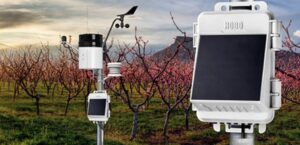Managing Security Risks in the Food & Beverage Industry

Managing security risks puts immense pressure on the food and beverage industry. Securing part of the nation’s food chain in a global economy is a huge undertaking. Over the past decade, the term ‘security risk’ has evolved to encompass much more than simple data theft. Data breaches, ransomware attacks, and now, operational shutdowns are becoming part of everyday news.
Cyberattacks are not reserved solely for data breaches and IT systems. They also include Operational Technology (OT) and industrial controls that disrupt operations, distribution, and the entire food supply chain. Operational technology, or OT, is a category of computing and communication systems to manage, monitor, and control industrial operations, focusing on the physical devices and processes they use. OT is taking on more responsibility for ensuring the safety of manufacturing and plant operations and often collaborates with those in the IT department.
Attacks in the food and beverage industry could slow or shut down the supply of materials and ingredients from suppliers to manufacturers and customers. A cyber threat could also shut down internal systems jeopardizing the integrity and safety of food products. Therefore, keeping industry systems safe is critical and no longer only an IT problem or only about personal data.
Enterprise Resource Planning (ERP) solutions provide a solid base of security for businesses and a secure line of defense for your company against internal threats such as fraud and misuse and exterior threats like cyberattacks and phishing scams. It can play a key role in your first line of defense against targeted cyberattacks.
Implementing an ERP system can solve the typical lack of security policies and staff training, along with outdated systems, insecure remote access, and ineffective firewalls. An ERP solution provides data security through standards-based security practices, risk and failover management, attack prevention, and processes for security advancement. ERPs alleviate businesses from providing their in-house protection from the ground up.
Security advantages of ERPs include automatic updates, firewalls, and immediate incident response. In addition, there are data security benefits of having an ERP system in general. For example, ERP solutions streamline data with only one entry point per client. This prevents the information from being duplicated or subjected to inconsistent updates. ERP systems also automate and simplify customer service, accounting, and production processes, eliminating calculation errors.
Ransomware attacks against food and beverage manufacturers are on the rise. At the same time, the industry manages volatility in sales and supply as consumer purchasing rises and falls in response to pandemic fears. Ransomware is an attack that shuts down production or halts progress until a ransom is paid. This volatile environment is ripe for cyber hackers who want to take down systems.
ERP solutions provide 24/7 monitoring of both internal and external activity. They are equipped with an immediate incident response system by automatically identifying unusual events and responding appropriately before they become larger problems. Internal actions include role-based authorizations and monitoring for out-of-trend activities such as account log-ins from unauthorized areas. Audit controls provide information about which team members are accessing networks, and include continuous monitoring of all remote connections, implementing privileged access control, two-factor authentication (2FA), and compliance.
The scariest of these attacks could be malware that breaks into industrial control systems (ICS) and the supervisory control and data acquisition systems (SCADA) that run and manage manufacturing facilities. The focus of these systems is to either bring the factories and operations to a complete halt or contaminate the food supply. Cloud-based ERP systems are the safest environment and best practice for preventing attacks. Your ERP provider has advanced knowledge and a vested interest in keeping data secure and should:
- regularly schedule penetration testing,
- have an intrusion detection program,
- a dedicated incident response team,
- ongoing security certifications compliance,
- support for industry-specific compliance such as FDA, and
- immediate patching when applicable.
Our team at Decision Resources, Inc. has the expertise and experience to ensure your ERP has what it takes to fulfill your company needs and meet customer expectations while keeping your data secure. To learn more about ERP systems and how they can help keep your data safe, call 412-562-9660 or email us at info@decision.com.
Similar Blogs

Chips, drugs, and steel — how to prepare for Trump tariffs

How Steel Manufacturers Forge Ahead with Infor CloudSuite Industrial ERP





